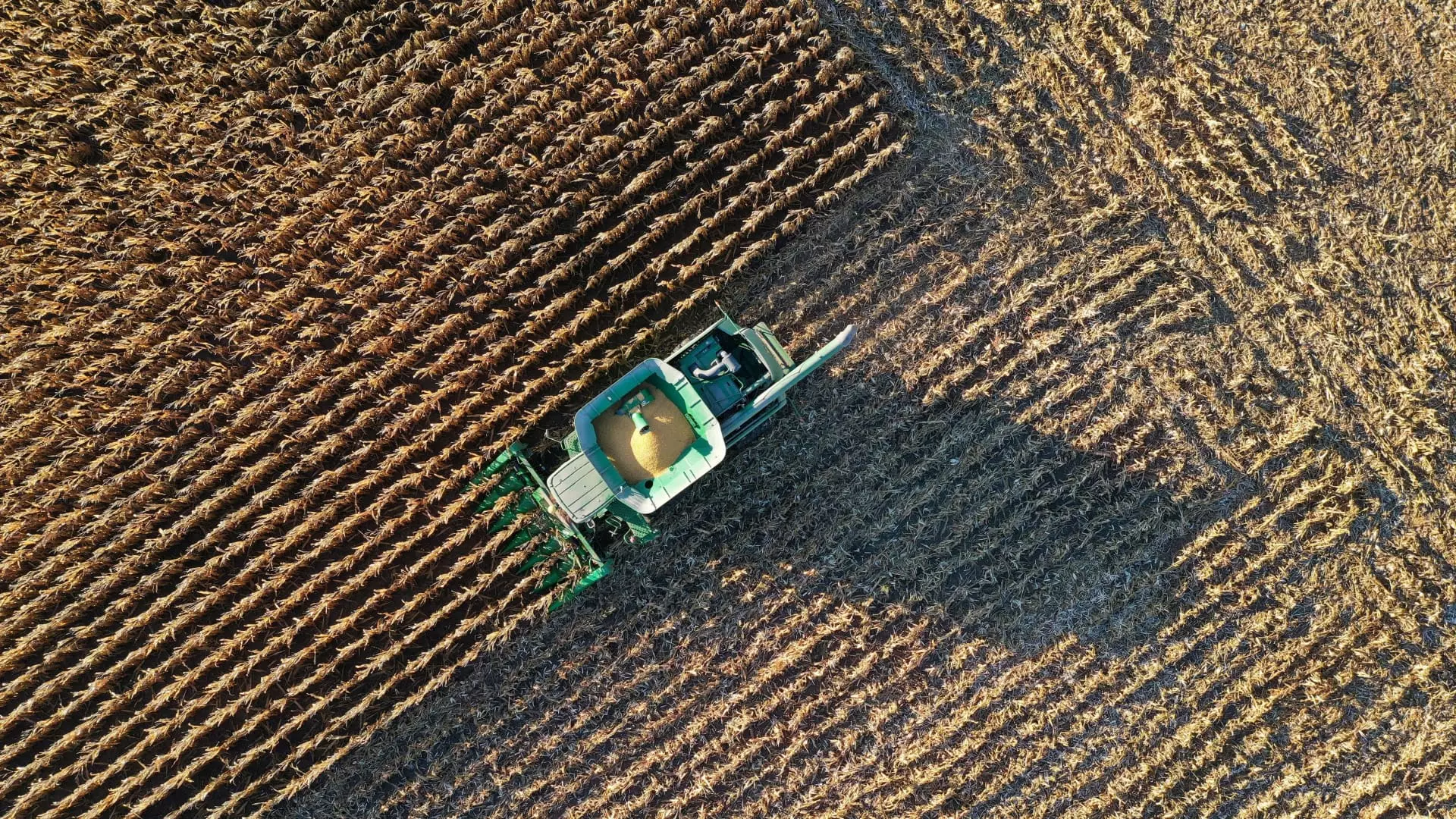In a climate riddled with uncertainty, the agricultural sector finds itself grappling with an unprecedented dip in farmer sentiment, the lowest reported in nearly ten years. This unsettling trend emerges as the nation braces for an intricate U.S. presidential election, casting further doubt on the future of farming investments. According to the Purdue University/CME Group Ag Economy Barometer, the prevailing mood among farmers has soured significantly, with 78% of participants voicing concerns over potential policy shifts post-election, thus complicating an already fragile financial landscape.
Compared to the previous year, farmers exhibit a starkly reduced level of confidence regarding their financial prospects. The latest report indicates an 18-point drop in the farmers’ financial expectations index, now sitting at a mere 68. This decline marks the third successive month of deteriorating expectations, a pattern that raises alarm bells across the agricultural community. Perhaps most astonishingly, more farmers are expecting a decline in farmland values for the first time since 2020, a significant departure from previous years where optimism prevailed.
James Mintert, director of Purdue University’s Center for Commercial Agriculture, suggests that farmland value growth may stagnate imminently. He warns of a looming crisis if commodity prices continue to plunge due to a supply-demand imbalance. As Mintert articulates, “People are clearly less optimistic about land values now than they were a year ago, two years ago, and especially three years ago.” This financial unease threatens to create a ripple effect in the real estate market targeting agricultural land, foreshadowing a shift in investor sentiment.
The anxiety doesn’t stop at fluctuating land values. Farmers are becoming increasingly wary of impending regulatory changes and tax implications, notably surrounding the estate tax. The expiration of elevated estate tax exemptions, installed during the Trump administration and set to lapse next year, contributes to the pervasive fears among producers. Michael Langemeier, associate director at Purdue, emphasizes that these financial anxieties are compounded by broader uncertainties surrounding the agricultural safety net, particularly as the federal government has not yet renewed the Agriculture Improvement Act of 2018, which directly impacts federal crop insurance and disaster assistance programs.
Until the new farm bill is ratified and assurances regarding federal support are established, unease amongst agricultural producers is likely to persist. Competition for resources and support mechanisms will only intensify as producers await clarity on these pivotal issues.
The political landscape presents its own challenges. According to a recent NBC News poll, the race between former President Donald Trump and Vice President Kamala Harris is poised to tighten as Election Day approaches. Each candidate’s stance on trade and agricultural policies could inflict varying effects on the sector. Trump remains aligned with protectionist approaches and threatens severe tariffs on manufacturers that relocate production, while Harris critiques these policies as detrimental to national trade.
This political volatility compounds existing uncertainties and leaves farmers questioning how shifts in leadership could further alter an already volatile marketplace. Each candidate’s policies have a direct bearing on agricultural economics, creating an atmosphere of apprehension that many find difficult to navigate.
Despite the dire outlook for many farmers, investors remain hopeful as certain agricultural players may still thrive. Analysts suggest that a Republican sweep could benefit industrial giants like Caterpillar, which may gain from favorable tax policies and renewed industrial activity. Conversely, if the election results favor the Democrats, shares in companies with strong ties to renewable fuels, such as Green Plains, might surge, driven by policies favoring clean energy.
However, the perceived short-term benefits must be weighed against long-term uncertainties. Companies like Deere have shown resilience, with share prices reflecting a possible market bottom. Jim Lebenthal, a partner at Cerity Partners, maintains that Deere’s approach to current macro challenges may yield future gains, despite ongoing pressures from trade policies.
As the agricultural sector braces itself for an uncertain election outcome, producers and investors alike face formidable challenges ahead. With plunging sentiment buttressed by economic pressures and legislative complications, both short-term volatility and long-term shifts in the farming landscape loom large. The evolving dynamics demand vigilance, as stakeholders redefine strategies to weather this stormy period, adapt to new realities, and position themselves for recovery in a transformed agricultural economy.


Leave a Reply